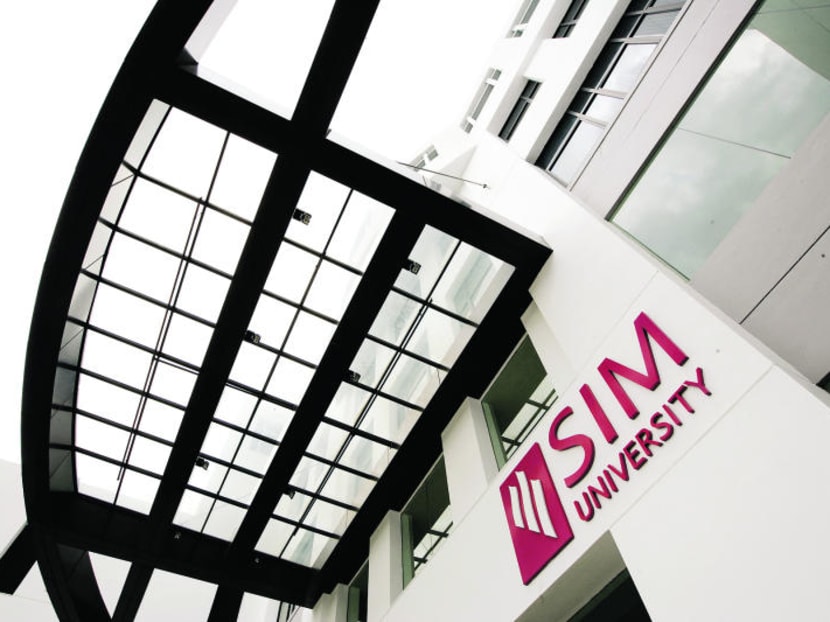UniSIM to be S’pore’s 6th autonomous university by next year
SINGAPORE — SIM University (UniSIM) will officially become the Republic’s sixth autonomous university by next year, five years after it was earmarked by the Government to drive efforts to increase the number of publicly funded university places here.
SINGAPORE — SIM University (UniSIM) will officially become the Republic’s sixth autonomous university by next year, five years after it was earmarked by the Government to drive efforts to increase the number of publicly funded university places here.
And it will be a university with a strong social sciences bent, preparing students for “socially related careers” in areas such as social work, human resource, psychology, early childhood education and family and criminal law.
UniSIM is currently a private university managed by the Singapore Institute of Management (SIM), a not-for-profit organisation. The Ministry of Education (MOE) said on Wednesday (Oct 12) that it has put forward a proposal to the university’s board of trustees and SIM’s
Governing Council, to restructure UniSIM as an autonomous university under the ambit of the ministry.
If accepted, it will work with the university and SIM on the restructuring and the rebranding of UniSIM in the coming months.
Delivering a speech at the university’s convocation ceremony on Wednesday, Acting Education Minister (Higher Education and Skills) Ong Ye Kung, said the move would see UniSIM “stand shoulder-to-shoulder” with the other autonomous universities.
“UniSIM will be a unique Singapore university, focusing on applied learning, in the domain of social sciences,” he said, adding that the university would still retain “limited offering” in other areas such as accountancy, business and engineering.
The university also houses Singapore’s third law school, which will see its first intake in January next year.
Autonomous universities receive government funding and are subject to government oversight, but have the flexibility to set their own direction and differentiate their educational offerings. Currently, National University of Singapore, Nanyang Technological University, Singapore Management University, Singapore University of Technology and Design and Singapore Institute of Technology (SIT) are autonomous universities.
In 2012, Prime Minister Lee Hsien Loong announced that the Government will add another 3,000 undergraduate places a year by 2020, and the increase would come from expanding programmes run by SIT and UniSIM, which would become Singapore’s fifth and sixth universities.
SIT, which was set up by MOE to offer programmes with overseas universities for polytechnic upgraders, became an autonomous university in 2014, and started offering its own government-funded degree programmes that year.
UniSIM also began offering government-subsidied full-time degree programmes that year, but it remained a private university, as the process for restructuring it as an autonomous university was more complicated.
In response to queries, an MOE spokesperson said changes to UniSIM’s current governance structure would include the transfer of control over key corporate decisions and key powers of appointment from the SIM Governing Council to the Acting Minister for Education (Higher Education and Skills).
Parliament will then need to pass a Act to confer autonomous university status on UniSIM. “Discussions are still ongoing to finalise the details of UniSIM’s establishment as an autonomous university. We are targeting for the new autonomous university to be formally established within 2017,” the MOE spokesperson said.
An UniSIM spokesperson said a general meeting of SIM members on the proposal will be held by the end of the year. The change would not materially affect students in terms of entry requirements and financial assistance, the latter of which has been the same as what was offered at other autonomous universities.
SIM Governing Council chairman Tan Soo Jin said: “UniSIM has built up its capabilities and status to take on a new and bigger role as an autonomous university. As a not-for-profit institution dedicated to supporting Singapore in its manpower development, SIM is proud to continue its support of the national agenda through UniSIM.”
As of the end of last year, there are 490 students enrolled in UniSIM’s full-time programmes, up from 220 as of end-2014. ADDITIONAL REPORTING BY SIAU MING EN







